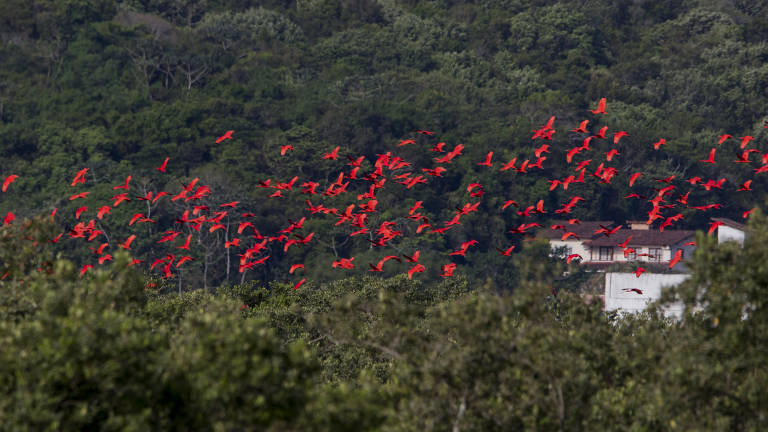The National Council for the Environment, chaired by Environment Minister Ricardo Salles, approved on Monday (28) the repeal of its resolutions 302 and 303, which had established criteria for the preservation of coastal areas of mangroves and sandbanks, as well as areas around water reservoirs, such as urban springs.
Resolution 303 establishes that the Permanent Preservation Areas (APP) in the coastal strips, protecting the entire length of the mangroves and delimiting the sandbank strips “covered by vegetation with a dune-fixing or mangrove stabilizer function” as APPs.
Its revocation benefits the real estate sector on sandbank beaches, and shrimp farming, especially on the coast of Rio Grande do Norte.
Resolution 302, on the other hand, established a minimum strip of protection of 30 meters around artificial reservoirs, such as the Billings, Guarapiranga, and Cantareira dams, in São Paulo. The revocation frees these areas for housing and economic uses, which could endanger the security of the areas and the water quality.
The council also revoked resolution 284, which submitted irrigation projects to the environmental licensing process. Among the environmental implications of irrigation, there is competition for water supply and also the risk of contamination by pesticides.
Agriculture uses 72% of the water consumed in Brazil, according to FAO data, the UN agency for food and agriculture.
The meeting also approved a new resolution that allows the burning of residues of persistent organic pollutants - such as pesticides, insecticides, and fungicides used in agriculture - in cement production ovens.
Highly toxic, persistent in the environment, and bioaccumulative (that is, our body does not eliminate them),
These pollutants—highly toxic, persistent in the environment, and bioaccumulative (that is, our body does not eliminate them)—are linked to hormonal, immunological, neurological, and reproductive disorders.
According to the World Health Organization, its uncontrolled burning can generate even more toxic by-products under inadequate temperature or incomplete combustion.
The revocations were widely approved by the collegiate body, formed mainly by representatives of the federal government and private sector associations - the national confederations of industry (CNI) and agriculture (CNA), which were also proponents of the revocations.
The state of Piauí and the two NGOs present at the meeting voted against all revocations - the International Institute for Research and Social and Environmental Responsibility Chico Mendes and the Associação Novo Encanto de Desenvolvimento Ecológico.
Also on Sunday (27), parliamentarians filed a popular preventive action in the Federal Justice requesting, in urgent protection, the suspension of the meeting or, if there is not enough time for the decision, the annulment of the decisions taken by the collegiate.
Translated by Kiratiana Freelon
